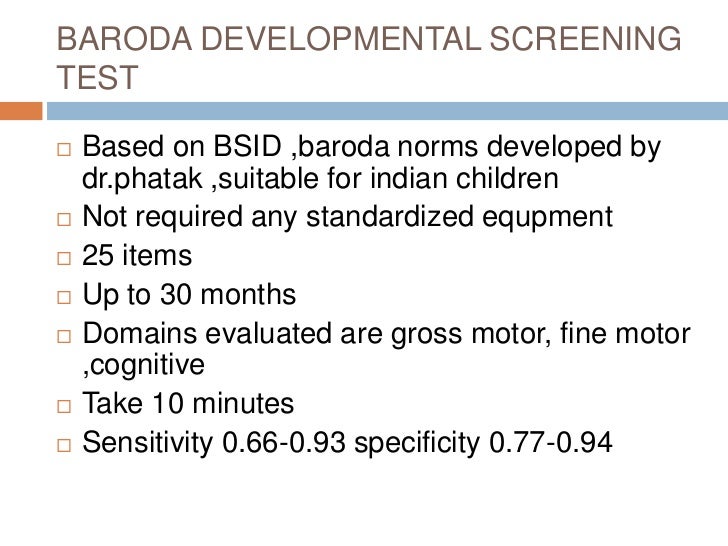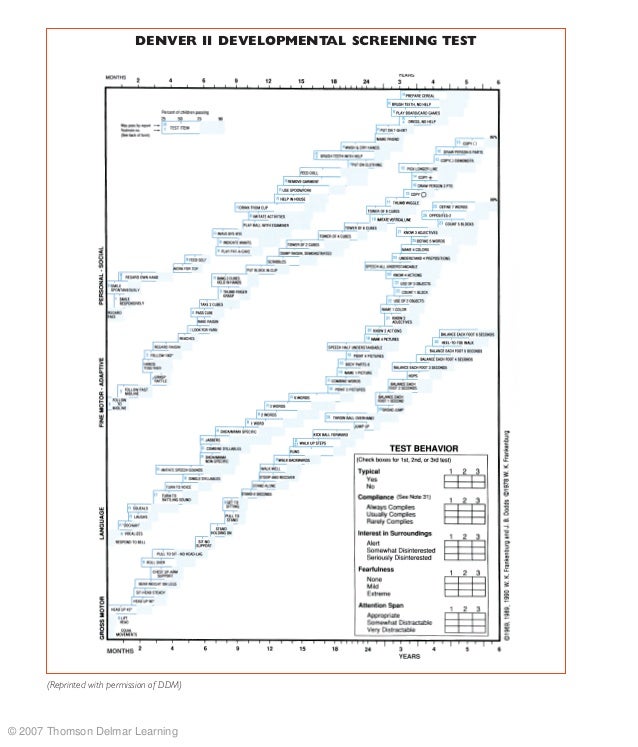

If your child is at higher risk for developmental problems due to preterm birth, low birthweight, environmental risks like lead exposure, or other factors, your healthcare provider may also discuss additional screening.

In addition, AAP recommends that all children be screened specifically for autism spectrum disorder (ASD) during regular well-child visits at: The American Academy of Pediatrics (AAP) recommends developmental and behavioral screening for all children during regular well-child visits at these ages:

However, developmental screening is a regular part of some of the well-child visits for all children even if there is not a known concern. Your child should be screened if you or your doctor have a concern. Developmental screening can be done by a doctor or nurse, but also by other professionals in healthcare, early childhood education, community, or school settings.ĭevelopmental screening is more formal than developmental monitoring and normally done less often than developmental monitoring. The tools used for developmental and behavioral screening are formal questionnaires or checklists based on research that ask questions about a child’s development, including language, movement, thinking, behavior, and emotions. Your child will get a brief test, or you will complete a questionnaire about your child. Developmental Screeningĭevelopmental screening takes a closer look at how your child is developing. More information on developmental monitoring for early childhood educators. Your childcare provider can also be a valuable source of information on how your child develops. A missed milestone could be a sign of a problem, so the doctor or another specialist will take a closer look by using a more thorough test or exam. The doctor or nurse might ask you questions about your child’s development or will talk and play with your child to see if he or she is developing and meeting milestones. When you take your child to a well visit, your doctor or nurse will also do developmental monitoring. If you notice that your child is not meeting milestones, talk with your doctor or nurse about your concerns.

You can use a brief checklist of milestones to see how your child is developing. Parents, grandparents, early childhood providers, and other caregivers can participate in developmental monitoring.
Printable denver ii developmental screening test pdf free#
Obtained data was analyzed by SPSS software.Milestones in Action is a FREE library of photos and videos of children showing developmental milestones.ĭevelopmental monitoring observes how your child grows and changes over time and whether your child meets the typical developmental milestones in playing, learning, speaking, behaving, and moving. Because ASQ is designed to use for 4-60 month- old children, children who were out of this rang were evaluated by developmental pediatricians. In order to determine the agreement coefficient, these children were also evaluated by ASQ test. At developmehtal a precise translation of test was done by three specialists in Pcf literature and then it was revised by three pediatricians familiar with developmental domains. In comparison with the screening results of the Japanese version of the Denver Developmental Screening Test, the overall sensitivity and specificity were 75.6% and 74.7%, respectively, when the. The purpose of the tests is to identify young children with developmental problems so that they can be referred for help. A revised version, Denver II, was released in 1992 to provide needed improvements. The Denver Developmental Screening Test was introduced in 1967 to identify young children, up to age six, with developmental problems. A children’s version of the Functional Independence Measure (WeeFIM) was developed to evaluate a child’s functional. Developmental skills can be formally assessed with a variety of tools, such as the Denver Developmental Screening Test II (DDST-II), Bayley Scales of Infant Development, and Gesell Developmental Schedule (eSlide 2.13). Revision of Denver Prescreening Developmental Questionnaire The Denver Prescreening Developmental Questionnaire PDQa parentanswered questionnaire, has been revised to extend the a g e of children who can be screened to those from 6 years down to birth, to make the test items more challenging for children and more informative for.


 0 kommentar(er)
0 kommentar(er)
